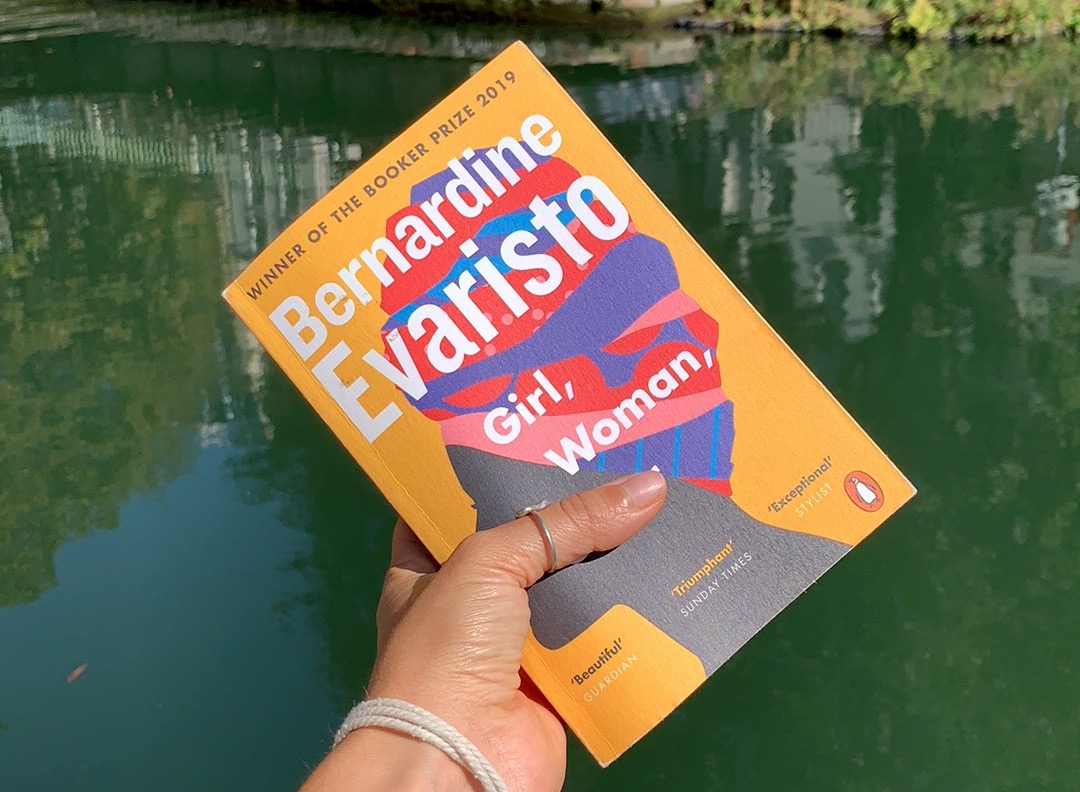When both of my book clubs opted to read Girl, Woman, Other, I had to take notice. This 2019 Booker winner (alongside Margaret Atwood, but that’s a whole other can of beans) offers a unique perspective on modern Britain, as a veritable chorus of female protagonists, mainly queer, mainly of color, guide the reader through interwoven threads of lives that span the better part of the 20th century towards a resolution of interconnectivity and humanity that is ultimately immensely satisfying.
My favorite part of this book is the way in which it suggests, through its very structure, the ways in which lives can briefly touch one another. The connections, however tenuous, linked the disparate narratives in a way that felt deft and calculated but in no way forced.
One thing that has been extensively discussed regarding this book is the voice. Written in a style halfway between poetry and prose with odd line breaks and punctuation choices, to me, it was a book that got under my very skin and infiltrated my way of thinking in a way unlike any book except, maybe, for Trainspotting. I loved it.
Not all of the narratives in this book conquered my heart equally. I found, especially, that the more the author departed from her lived experience – in age, in sexuality –, the more difficulty I had empathizing with characters on the page. But the book on the whole positively radiated humanity, and, especially now, it should be on everyone’s must-read list.
